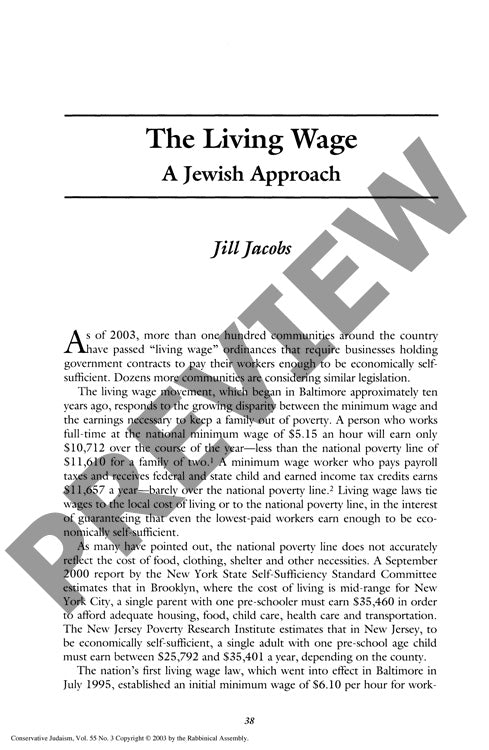The Living Wage a Jewish Approach
Couldn't load pickup availability
When minimum wage workers cannot afford basic necessities despite full-time employment, Jewish legal principles offer a compelling framework for wage reform. Through analysis of biblical and talmudic sources, particularly Leviticus 19:13 and Deuteronomy 24:14-15, three core principles emerge in Jewish labor law: minhag hamakom (local custom), employer responsibilities, and employee obligations. While Jewish law traditionally defers to local wage customs, it fundamentally assumes these customs enable workers to achieve economic self-sufficiency and escape poverty—an assumption violated by current minimum wage standards. Textual examination of rabbinic sources and legal precedents reveals that Jewish law not only permits but mandates communal intervention when existing wage practices prevent the fulfillment of halakhic obligations. The implementation of living wage ordinances thus aligns with Jewish legal principles by restoring conditions under which traditional employer-employee halakhot can function effectively, supporting both worker dignity and economic justice.

More Information
-
Physical Description
-
Publication Information
Published 2003
ISBN
-
Publication Credits
Jill Jacobs

